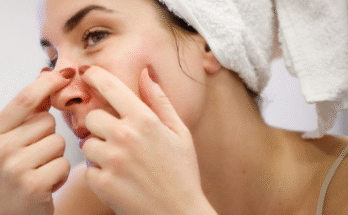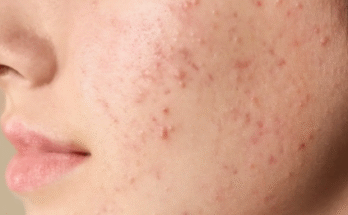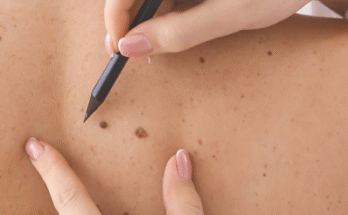Everyone wants clear, glowing skin, but the occasional pimple or blackhead is something almost everyone experiences at some point. These tiny imperfections can be frustrating, especially when they appear right before an important event or in a noticeable spot on the face. While there are many videos and stories online about “pimple popping,” it’s important to understand what’s really going on with blackheads, how to manage them safely, and how to keep your skin healthy without causing irritation or damage.
Understanding Blackheads and Pimples
Blackheads are a common type of mild acne. They form when pores become clogged with oil (sebum), dead skin cells, and other debris. When the pore remains open, the buildup inside oxidizes upon contact with air, turning dark. This is why blackheads have their distinctive color. Pimples, on the other hand, are small inflamed bumps that can occur when bacteria join the mix, leading to redness or swelling.
These skin issues often appear on the face—particularly on the nose, chin, and forehead—because those areas have more active oil glands. Factors like hormones, diet, stress, or even environmental pollution can increase the likelihood of developing clogged pores.
Why You Shouldn’t Pop Pimples or Blackheads
It can be tempting to squeeze or pop a blackhead when you see it, especially since it looks like a quick fix. However, dermatologists consistently advise against doing this yourself. Popping or squeezing can push bacteria deeper into the skin, leading to more inflammation, scarring, or even infection. It can also make pores appear larger over time and disrupt your skin’s natural healing process.
Instead, it’s better to take a gentle, patient approach that focuses on prevention and long-term skin health. With consistent care, blackheads and pimples can be reduced safely and effectively without resorting to manual extraction.
Safe Ways to Manage Blackheads
The key to managing blackheads is maintaining a consistent skincare routine that keeps pores clear and skin balanced. Cleansing the face twice daily with a mild, non-comedogenic cleanser helps remove excess oil and impurities without stripping the skin. Harsh scrubbing or over-washing can irritate your face, so it’s best to treat your skin gently.
Exfoliation is another important step. Using a gentle exfoliating product a few times per week helps remove dead skin cells before they have a chance to clog pores. Look for ingredients like salicylic acid or glycolic acid, which are known for their ability to deeply cleanse pores and improve skin texture. Clay masks can also help absorb oil and impurities, providing a smoother, cleaner feel after regular use.
The Role of Moisturizing and Sun Protection
It might sound counterintuitive, but even oily or acne-prone skin needs hydration. When skin becomes too dry, it compensates by producing more oil, which can make blackheads worse. Choosing a lightweight, oil-free moisturizer can help maintain the right balance. Ingredients like hyaluronic acid provide moisture without clogging pores.
Sun protection is equally important. Excessive sun exposure can worsen acne marks and cause premature aging. Daily use of a non-comedogenic sunscreen helps protect the skin barrier and prevents discoloration from healing pimples.
Professional Treatments and When to Seek Help
If over-the-counter methods aren’t working, it might be time to consult a dermatologist or licensed skincare professional. They can recommend treatments like chemical peels, professional facials, or extractions performed under hygienic conditions. These procedures help clear clogged pores safely and reduce the chances of scarring or infection.
Dermatologists may also prescribe topical retinoids, which promote faster skin cell turnover and help prevent pores from becoming clogged. For more persistent acne, they might suggest other treatments like benzoyl peroxide or certain antibiotics, depending on your skin’s condition.
The key is to avoid attempting these treatments yourself without proper guidance. What works for one person’s skin might not be suitable for another, so personalized advice can make all the difference.
Building a Healthy Skincare Routine
A good skincare routine doesn’t have to be complicated. It’s about consistency rather than the number of products used. Start with a simple morning and evening routine that includes cleansing, moisturizing, and applying sunscreen during the day. Adding targeted treatments, such as a toner or serum, can help address specific concerns like oil control or uneven tone.
Lifestyle habits also play an important role in keeping your skin clear. Drinking enough water, eating a balanced diet rich in fruits and vegetables, and getting adequate sleep can all contribute to a healthier complexion. Stress management is another often-overlooked factor. High stress levels can trigger hormonal changes that lead to breakouts. Taking time to relax, meditate, or exercise can benefit both your skin and overall well-being.
How to Handle the Urge to Pop
For many people, the urge to pop a blackhead or pimple comes from wanting instant results. But the most effective skincare improvements take time. When you feel tempted, remind yourself that short-term satisfaction can lead to long-term problems like scarring or lingering redness. If you find it hard to resist, try using pore strips or clay masks occasionally, which can give you that “clean skin” feeling without the risks of manual popping.
Another helpful tip is to keep your hands clean and avoid touching your face throughout the day. Our hands come into contact with dirt and bacteria constantly, and touching the face can transfer these impurities to the skin, leading to more clogged pores.
Embracing Skin Positivity
It’s important to remember that having blackheads or pimples doesn’t mean your skin is unhealthy or that you’re doing something wrong. These are natural, common occurrences that most people deal with at some point. Social media often portrays perfectly smooth, flawless skin, but real skin has texture and imperfections—and that’s completely normal.
Practicing self-care and self-compassion is just as essential as any skincare product. Healthy skin takes time and patience, and everyone’s journey is different. Instead of focusing on perfection, aim for progress—skin that feels comfortable, balanced, and cared for.
Final Thoughts
Managing blackheads and pimples on the face doesn’t have to be stressful or complicated. By following gentle, consistent skincare habits and resisting the temptation to pop, you can achieve clearer skin safely. Focus on using mild products, protecting your skin from sun damage, and keeping your lifestyle healthy. Over time, your skin will reward you with a natural, healthy glow.
The next time you notice a small blemish or blackhead, remember: it’s just part of being human. With patience, care, and the right routine, you can keep your complexion clear and confident without ever needing to pop a thing.


